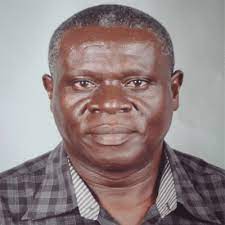
Gender, Food and Nutritional Access: Contextualization, Progress and Impact on Development
Briefing Paper
October 16, 2023
Executive Summary
This briefing paper navigates the intricate landscape of food security, nutrition, and gender dynamics in Kenya, illuminating the transformative potential of a gender-responsive approach. The indisputable link unfolds as a catalyst for shifting power relations and ensuring equitable benefits from development policies. The non-negotiable centrality of gender equity in inclusive development provides the backdrop for this exploration.
The narrative begins with a panoramic view of Kenya’s food security landscape, which is deeply rooted in legislative frameworks such as the Food Security Act of 2017. Global principles, echoing the adequacy, stability, accessibility, and quality of food supply, resonate within the Sustainable Development Goals (SDGs). Notably, Goal 5 (gender equality) and Goal 2 (ending hunger) converge to highlight the crucial role of nutrition. The African Union’s Agenda 2063 and the United Nations System Standing Committee on Nutrition provide guiding beacons for aligning nutrition with development dialogues.
Gender dynamics infuse the narrative, unravelling the symbiotic relationship of food security, nutrition, and gender in the agricultural sector. It intimates that women, a formidable force in agriculture, face constraints stemming from limited access to resources and opportunities. Global gender disparities in malnutrition find resonance in Kenya, with women and girls being disproportionately affected.
Despite the agricultural sector’s dominance in Kenya, a significant portion of the population still grapples with food insecurity, and women of reproductive age are highlighted as facing heightened vulnerabilities. Gender disparities and limited mainstreaming exacerbate inefficiencies, fostering high poverty levels and nutritional deficiencies. This brief uses a gender power analysis lens to unveil the profound impact of gender norms on Kenya’s nutritional landscape. Rooted in patriarchy, these norms hinder women’s economic participation and restrict access to resources.
Fragile environments magnify these challenges, placing girls at increased risk of food insecurity. This paper delves into case examples, such as the presentation of gendered challenges in Samburu, Mandera and Isiolo, to highlight the influence of cultural norms and limited educational opportunities on women’s roles in food and nutritional access. Therefore, this brief underscores the urgency for gender-responsive policies and programmes in food production and value addition.
While reviewing the policy and legal frameworks on gender equality and their operationalization, this paper intricately weaves a narrative tapestry, showcasing Kenya’s formal commitment to gender equality. The Constitution of Kenya (2010) acts as a conduit for integrating global treaties into national legal obligations, including food security and nutrition. However, despite milestones such as the National Policy on Gender and Development and the establishment of the National Gender and Equality Commission, gender inequalities persist.
To resolve some access challenges, this study accentuates the critical nexus of gender dynamics, women’s empowerment, and food security. Women’s economic empowerment is spotlighted as a social multiplier positively correlated with improved child and household nutrition. Acknowledging women’s often undervalued contributions to food production, it advocates unbiased access to resources such as land.
It progresses to provide examples of programmatic initiatives in Kenya, from agricultural sector reforms to affirmative funds and community-level projects, addressing the triple burden of gender, food, and nutritional access. Despite these strides, the report underscores the need for country-specific policy actions and evidence-based approaches to bridge gender gaps in agricultural markets and enhance nutritional outcomes.
In conclusion, this analysis underscores the irrefutable importance of gender equity in development practices. The brief proposes comprehensive solutions, recognizing women as pivotal actors in achieving gender-equal food security and nutrition. It emphasizes a nuanced examination of power dynamics within the nutritional context, calling for a focus on the social dimensions of empowerment, such as social status. The recommendations encompass a spectrum of efforts— from rectifying gender power imbalances through economic empowerment to addressing persistent gender gaps and mainstreaming gender considerations in agricultural value chains. The call to prioritize governance issues around agricultural management and disrupt ingrained social and cultural norms is echoed throughout the brief.
In essence, the analysis paints a compelling picture—a clarion call for sustained efforts to empower women, recognizing their indispensable role in achieving gender-inclusive food security and nutrition in Kenya. Gender equality is not only a goal but also a foundational means for holistic development. The brief stands as a testament to the imperative of weaving gender considerations into the fabric of development policies for a truly equitable and nourished society.
Dr. Okumba Miruka, a prominent gender consultant in Kenya, brings 30 years of expertise consulting for UN, World Bank, NGOs, and government ministries. Holding a Ph.D. in Gender and Development, he is an adjunct lecturer, gender columnist, and researcher at Kenyatta University.
Okumba Miruka PhD.
Gender Consultant


With over a decade as a program manager, monitoring and evaluation expert, and researcher in the Horn of Africa, he holds degrees in Anthropology and Conflict Management. Currently a Ph.D. candidate, his commitment lies in advancing research in critical areas, including gender, food, and nutritional access.
Muliru Yoni
Director - Scofield Associates
October 2023 - Briefing Paper: Gender, Food and Nutritional Access: Contextualization, Progress and Impact on Development
Download
Send download link to:
